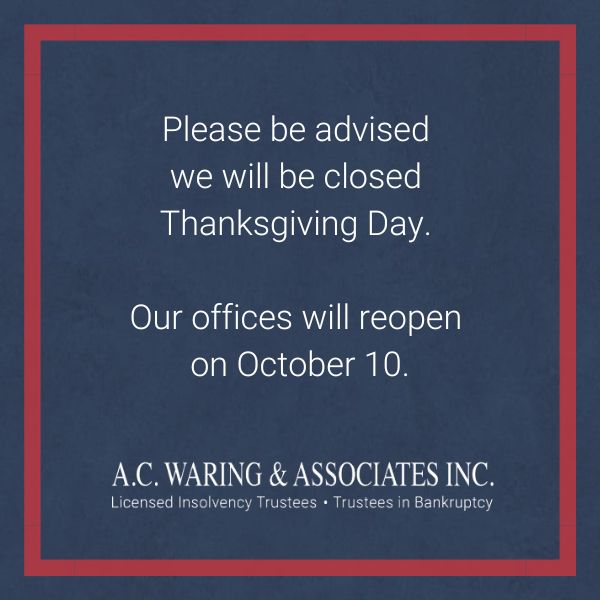Buying a house is arguably the largest purchase you’re ever going to make, and almost every single person pays for their house by way of a mortgage.
Mortgages are a specific type of secured loan you set up with your lender (typically a bank) to pay for your house over a period of time. Mortgage payments depend on various factors, like how much the house costs, how long you want to take to pay off the mortgage, interest rates, and down payment.
However, once you settle on a mortgage that works for you and your lender, it’s up to you to make those mortgage payments every single month. If you don’t, your lender may start a foreclosure process to retain their property.
Foreclosures are the ultimate worst-case scenario for not paying your mortgage on time. However, lenders usually send notices of arrears or foreclosure letters after three months of non-payment or inadequate payment as stipulated in the mortgage agreement.
Your Lender and the Foreclosed Property
In almost all residential foreclosure actions in Alberta, the lender, rather than take title of the property, will apply to the court for an “order for sale” to list the property with a realtor. The recent exceptions to this have been condominiums which were not easily salable as well as rural properties which were also hard to sell.
In almost every other instance, offers received on properties are presented to the court and if they are reasonable they are approved for acceptance by the Court Registrar. The owner is then given 30 days to vacate the property and title is passed from the present owner to the purchaser. The lender therefore does not have to hold title at all when using this foreclosure mechanism. Further, if there is any surplus recovery over the lender’s loan and costs, it is paid into court. The present owner can then apply to court to receive this surplus.
If the lender does take title on a foreclosed home, it will appoint a realtor to sell the property as soon as possible.
Foreclosure or Power of Sale: What’s the Difference?
There are opportunities to possibly keep your home, but it depends on the process your lender chooses to take.
In Alberta, almost every single lender will go through the foreclosure process to get their property back, but this isn’t the only option available.
Power of Sale
Some lenders may choose to go through a power of sale process. A power of sale allows lenders to skip over most of the legal process, keeping the issue almost strictly between the lender and the borrower. Power of sale resolves much faster than foreclosures. This means that the lender can retrieve their property in just a few weeks.
During a power of sale, the lender will send the borrower a notice of sale to start the process if they default on a mortgage for a certain amount of time. Typically, the borrower has about 35 days to pay their mortgage (called a grace period), but if they don’t, it’s up to the lender to fill out a statement of defense for the court. If the court rules in favour of the lender, the eviction process starts and the borrower has 20 days to leave the property.
Judicial Foreclosures
Foreclosures, also known as judicial foreclosures, are more common in Alberta. However, they are also a longer and more expensive process than power of sale, and some processes can take months or even years to resolve.
If the borrower defaults on their mortgage, the lender may go to the court to file a statement of claim. The court then sends the borrower a copy of the claim, giving them 20 days to respond. If you file a statement of response to the court, they may allow you some time to pay back your missing mortgage payments and any penalty fees you might’ve accrued.
What Happens to Your Mortgage During Bankruptcy?
Only $40,000 of home equity is exempt from the bankruptcy process, and any equity above this amount is considered to be an asset. What this means is that any equity above $40,000 will give your licensed insolvency trustee the ability to realize the amount and pay it to your creditors. Your trustee will need the non-exempt amount from you, and if you cannot provide it, you’ll have to sell your house.
Even if you can pay your non-exempt equity to your creditors (which is rare if you’re declaring bankruptcy), you may also choose to sell your home. Selling your home may be a better option if you cannot keep up with your mortgage payments.
However, if you don’t have a lot of home equity (less than $40,000), you may still be able to keep your home, but this is ultimately determined if you can actually keep up with your mortgage payments. Speak with our licensed insolvency trustees to see how bankruptcy may affect your homeownership.

How Does Foreclosure Affect Future Mortgage Opportunities?
Missing a mortgage payment or defaulting can last on your credit report for up to 7 years, depending on the province.
The good news is that foreclosing on your home does not prevent you from applying for a mortgage in the future, but it can make it more difficult.
Ultimately, lenders want to know that you’re a reliable person when it comes to managing debts. Defaulting on your mortgage can make lenders more hesitant to sell you a home. The best way you can improve your chances of getting approved for a mortgage is building up a healthy credit history with smaller loans and payments. It may take a couple of years, but it’s possible.
The other way is negotiating with the lender, which also could take a while. You may have to provide the circumstances that led to your previous foreclosure, or you may have to pay a larger down payment so the lender feels more comfortable with you as a borrower.
Unsure Where to Start?
Even if you’re staring foreclosure in the face, our team is here to help.
We have served thousands of Albertans find ways to take control of their debt, and we offer a number of strategies. All you have to do is reach out to us and we can get started on resolving your financial issues.





